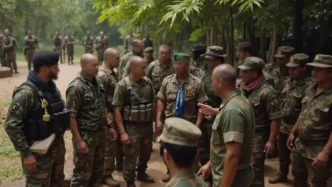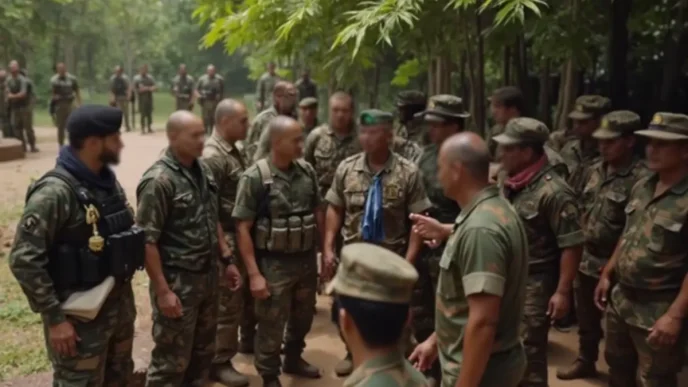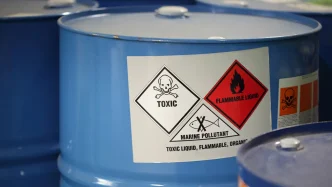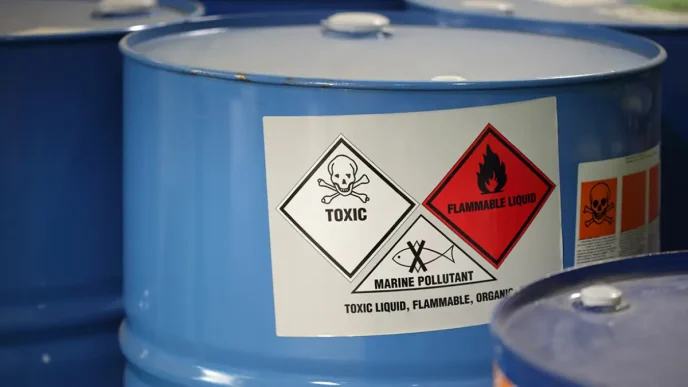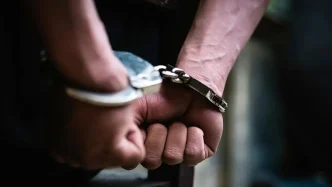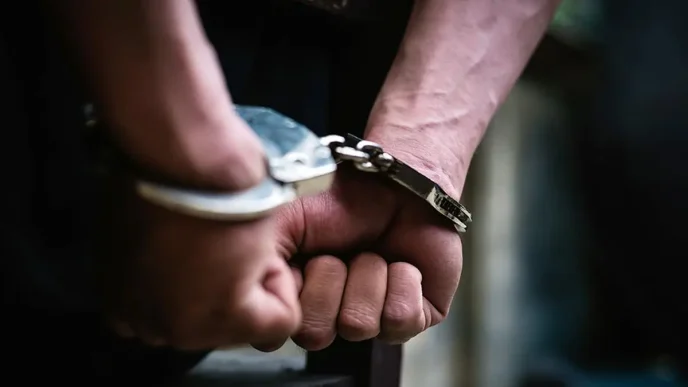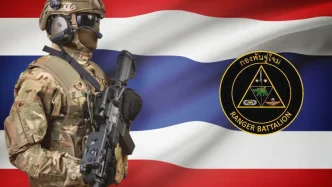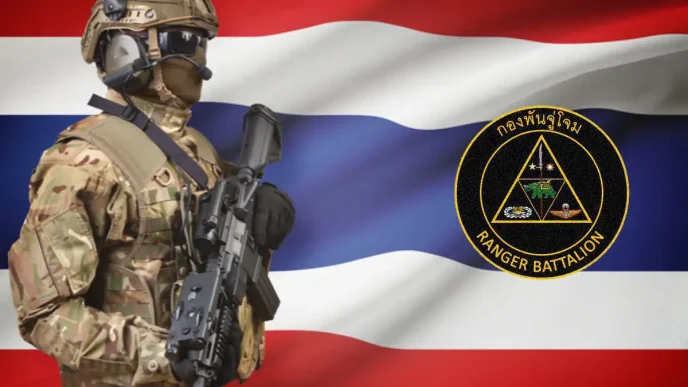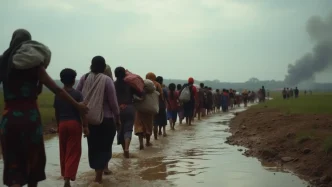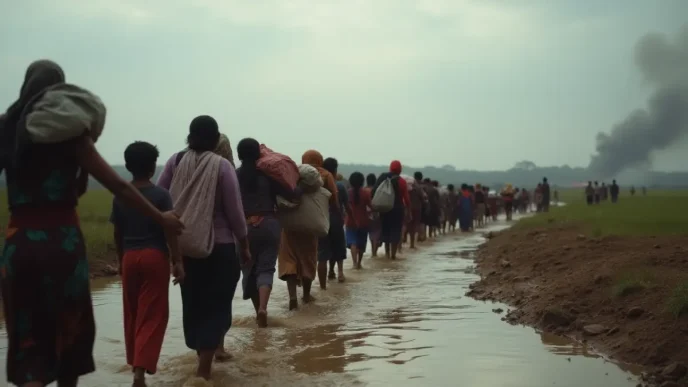The arrest of former Philippine President Rodrigo Duterte on charges related to extrajudicial killings during his infamous war on drugs has sent shockwaves through South East Asia. On 7 March, the International Criminal Court (ICC) issued a warrant for Duterte’s arrest, culminating in his transfer to The Hague earlier this week. This marks a historic moment, not only for the tens of thousands of victims’ families seeking justice but also for a region long plagued by human rights abuses. As protesters in Quezon City demand accountability, the implications of Duterte’s case resonate far beyond the Philippines, raising questions about impunity, international law, and the future of governance in ASEAN.
A Brutal Legacy Under Scrutiny
Rodrigo Duterte, now 79, has been a polarising figure in Philippine politics for decades. As mayor of Davao City and later as president from 2016 to 2022, he orchestrated a ruthless campaign against suspected drug dealers and users, often described as a ‘war on drugs’. Human rights groups estimate that tens of thousands were killed in extrajudicial operations, many carried out by police or vigilante groups allegedly under Duterte’s direct encouragement. The ICC investigation, initiated in 2021, covers alleged crimes from November 2011 to March 2019, a period that includes his time as mayor and president, before the Philippines controversially withdrew from the ICC under his leadership.
Duterte’s arrest, facilitated by current President Ferdinand “Bongbong” Marcos Jr, represents a dramatic shift in domestic politics. Initially, Marcos resisted ICC involvement, framing the issue as a purely internal matter. However, a deteriorating relationship with Duterte—exacerbated by the impeachment of Duterte’s daughter, Vice President Sara Duterte, by the Senate on 5 February—appears to have paved the way for cooperation. The arrest went unhindered, a stark contrast to Duterte’s defiant rhetoric, in which he repeatedly vowed to continue targeting drug dealers if given the chance.
For the families of victims, this development offers a glimmer of hope after years of anguish. In Quezon City, protesters gathered on 11 March, holding placards and photographs of loved ones lost to the violence. Their demands are clear: justice must be served, not just for Duterte but for all those complicit in the bloodshed. Yet, Duterte’s supporters remain steadfast, arguing that his harsh measures were necessary to curb crime and protect society—a narrative that continues to divide public opinion.
A Warning to ASEAN Leaders
Duterte’s arrest is not merely a Philippine story; it is a cautionary tale for leaders across ASEAN, a region where human rights violations have often gone unpunished despite the adoption of the ASEAN Human Rights Declaration in 2012. The ICC’s reach, though limited to specific jurisdictions, serves as a reminder of international mechanisms designed to hold individuals accountable for atrocities. Only Cambodia and Malaysia among ASEAN member states have ratified the Rome Statute, the treaty that established the ICC, yet the court’s actions demonstrate that impunity is not absolute.
The case of Myanmar’s military junta leader, General Min Aung Hlaing, looms large in this context. Accused of war crimes against the Rohingya minority between August and December 2017, as well as orchestrating a coup against a democratically elected government in February 2021, Min Aung Hlaing is on the ICC prosecutor’s wanted list. While Myanmar is not a signatory to the Rome Statute, the court’s jurisdiction extends to crimes committed in Bangladesh, an ICC member state, where many Rohingya fled. If Duterte’s arrest sets a precedent, it may signal that other leaders implicated in gross human rights abuses could face similar scrutiny, regardless of their domestic power.
This development poses a dilemma for ASEAN governments. The region’s principle of non-interference has often shielded leaders from accountability, allowing systemic abuses to persist under the guise of sovereignty. Duterte’s case challenges this status quo, suggesting that international pressure and legal frameworks can pierce the veil of impunity. For activists and civil society groups, it is a call to action: human rights must become a guiding norm, not an abstract ideal, if ASEAN is to chart a path towards a just future.
The ICC’s Broader Impact and Limitations
The ICC, established in 2002 under the Rome Statute, is tasked with prosecuting the gravest crimes of international concern, including genocide, war crimes, and crimes against humanity. With 122 member states obligated to enforce its arrest warrants, the court wields significant symbolic power. To date, it has indicted 68 individuals, including high-profile figures like Russian President Vladimir Putin and Israeli Prime Minister Benjamin Netanyahu, alongside Duterte. Currently, trials for 34 war crime suspects are underway, though 30 remain at large, highlighting the court’s enforcement challenges.
Duterte’s case underscores both the ICC’s potential and its limitations. While his arrest marks a victory for accountability, other leaders evade justice due to geopolitical realities. Netanyahu, for instance, benefits from the unwavering support of the United States, a non-member of the ICC, rendering his trial in The Hague highly unlikely despite an active arrest warrant. Such disparities fuel criticism that the ICC disproportionately targets leaders from less powerful nations, raising questions about fairness and political bias in international justice.
In Duterte’s case, the Philippines’ withdrawal from the ICC in 2019 under his own administration adds a layer of complexity. The court’s jurisdiction applies only to crimes committed before the withdrawal, yet its persistence in pursuing the case demonstrates a commitment to accountability that transcends political manoeuvring. For ASEAN, where many states remain outside the ICC’s framework, this serves as a reminder that international norms can still exert influence, even if indirectly through global pressure and reputational costs.
What Lies Ahead for the Philippines?
As Duterte awaits trial in The Hague, the domestic fallout in the Philippines remains uncertain. His arrest has deepened political divisions, with Marcos Jr navigating a delicate balance between distancing himself from Duterte’s legacy and maintaining stability among the former president’s loyalists. The impeachment of Sara Duterte, once seen as a potential successor to her father’s political dynasty, further complicates the landscape, hinting at a broader reckoning within the country’s elite.
For ordinary Filipinos, particularly the families of those killed in the drug war, the focus is on justice and healing. Many hope the ICC trial will expose the full extent of the atrocities and hold not just Duterte but also his enablers accountable. Yet, there is also scepticism: will a conviction, if it comes, translate into tangible reparations or systemic change? The war on drugs left deep scars on communities, with trust in law enforcement and state institutions severely eroded. Rebuilding that trust will require more than a single trial; it demands a fundamental shift in how power is wielded and accountability enforced.
Beyond the courtroom, Duterte’s case could galvanise human rights advocacy in the Philippines and across ASEAN. Activists argue that it sets a precedent for challenging impunity, encouraging victims to speak out and demand justice. At the same time, it may prompt leaders to rethink policies that prioritise control over rights, lest they too face international scrutiny. If confirmed, such a shift could mark a turning point, though it remains speculative and dependent on sustained regional and global pressure—no evidence yet confirms a widespread policy change among ASEAN states.
A Regional Reckoning
Rodrigo Duterte’s arrest is a historic moment for the Philippines and a potential catalyst for change in ASEAN. It underscores the power of international law to challenge impunity, even as it exposes the limitations of institutions like the ICC in a geopolitically fragmented world. For the families of victims, it offers a long-awaited chance for justice, while for leaders across the region, it serves as a stark warning: atrocities have consequences, and the world is watching.
As the trial unfolds in The Hague, its ripples will be felt from Quezon City to Yangon. Whether it inspires a new era of accountability or remains an isolated victory depends on the collective will of ASEAN’s governments and peoples. One thing is clear: the arrest of a former president for crimes against humanity is a statement that human rights are not negotiable, even in a region where they have too often been sidelined. For now, the eyes of South East Asia remain fixed on Duterte—and on what comes next.



